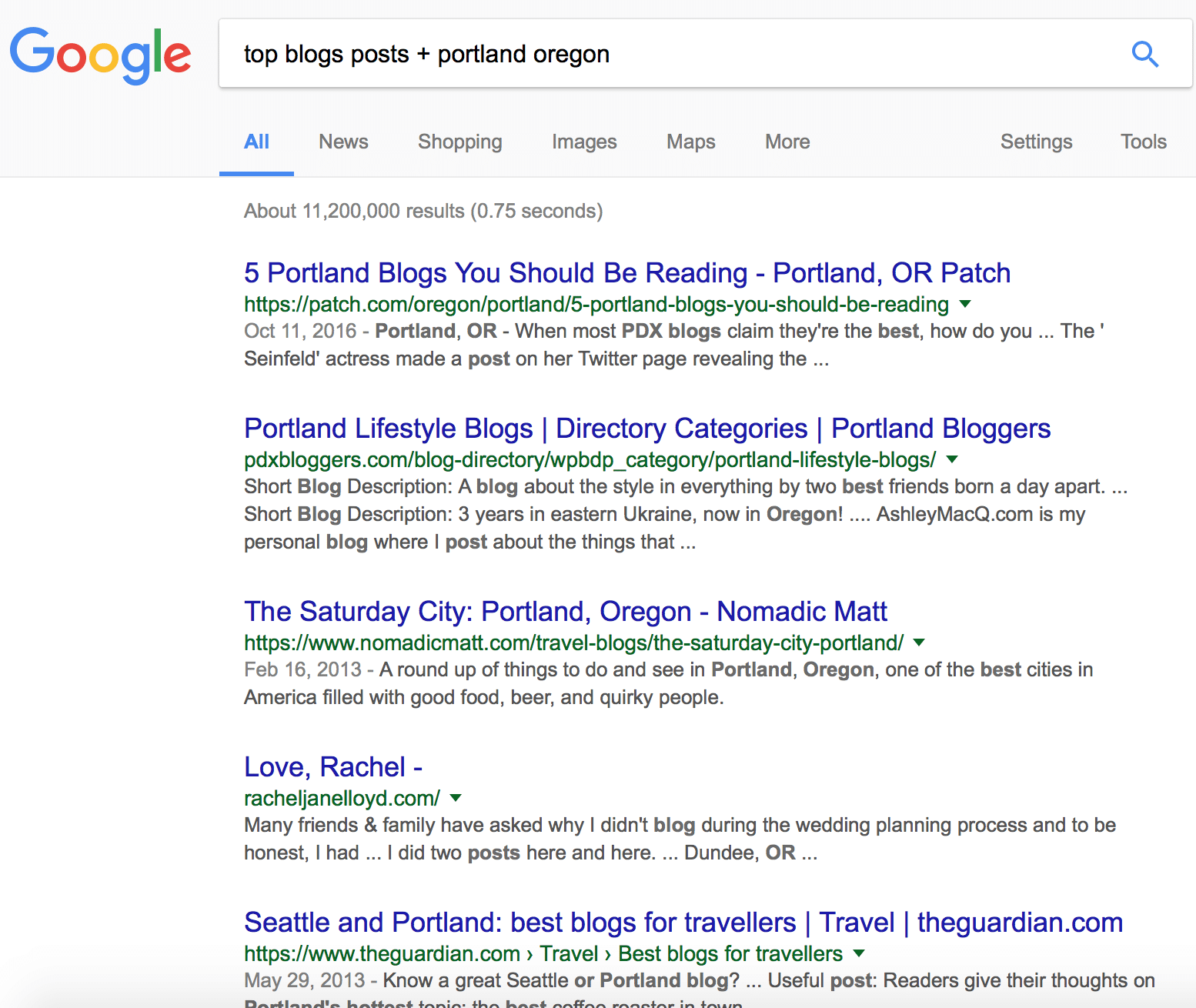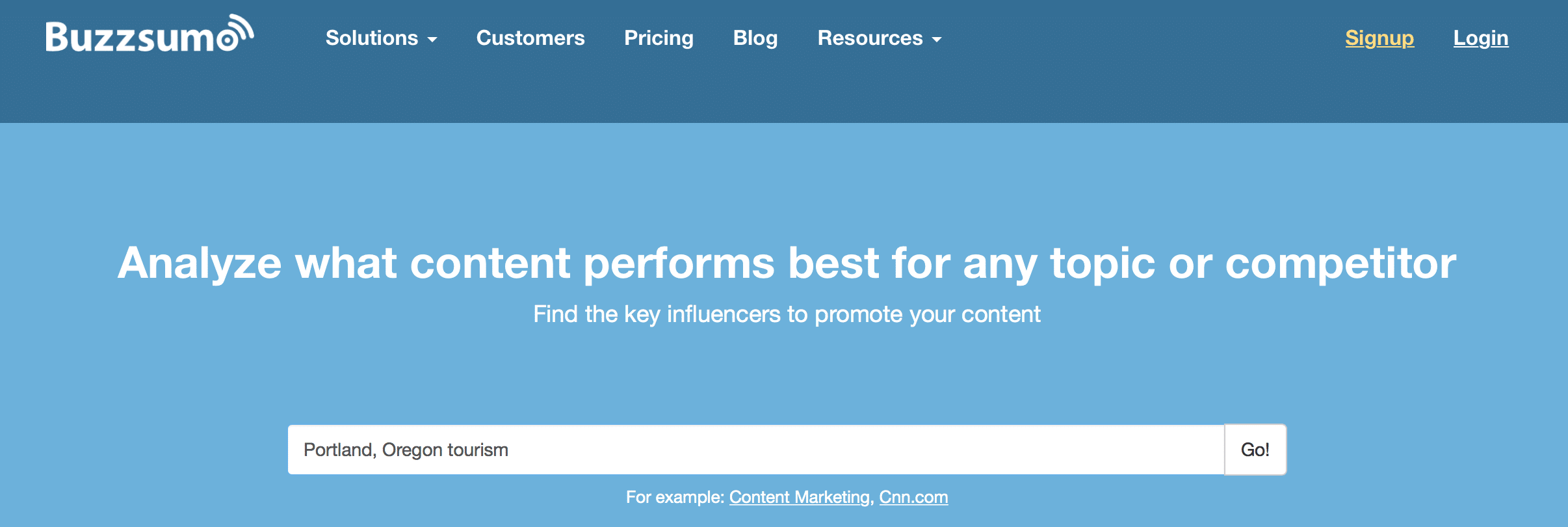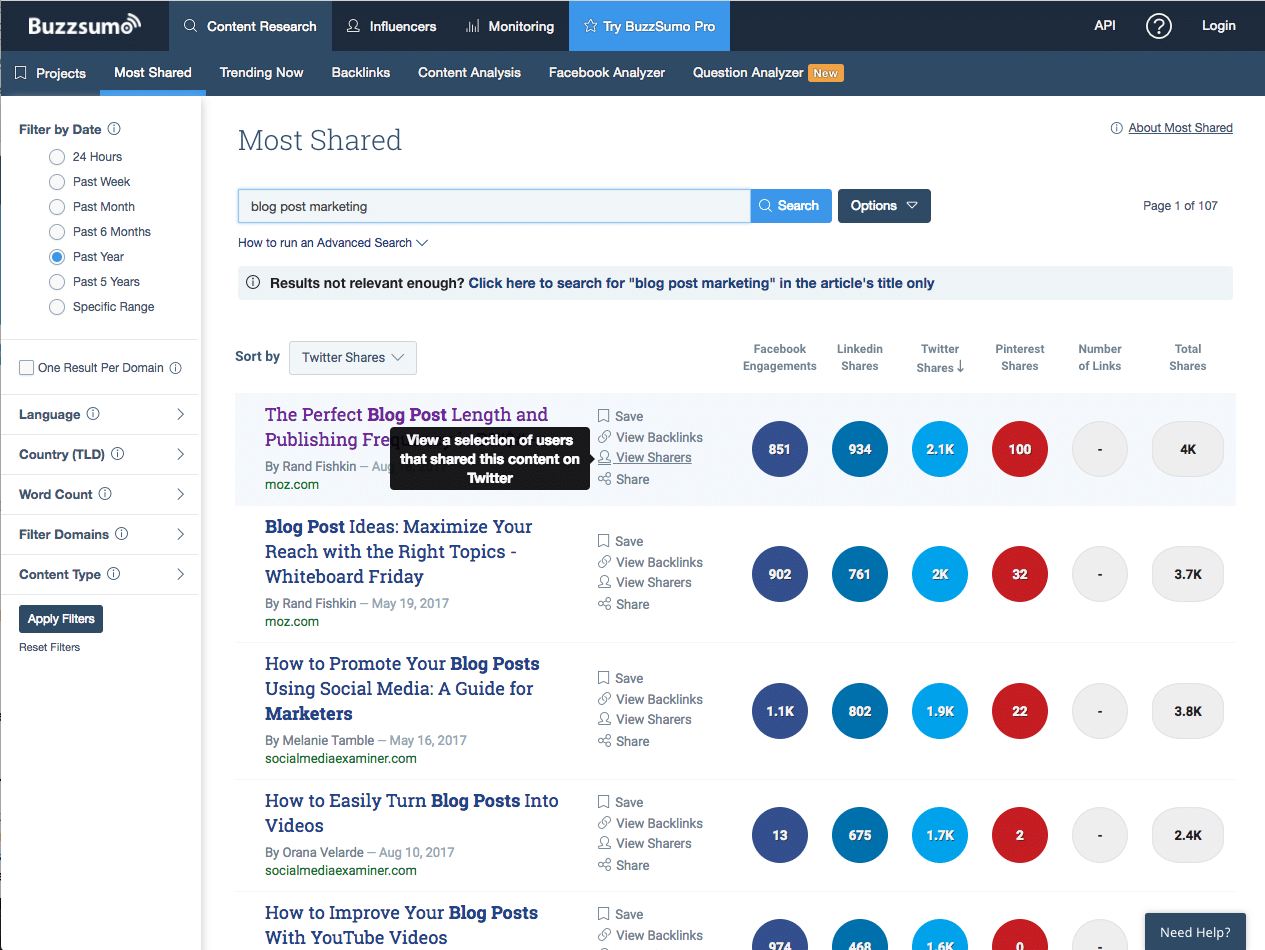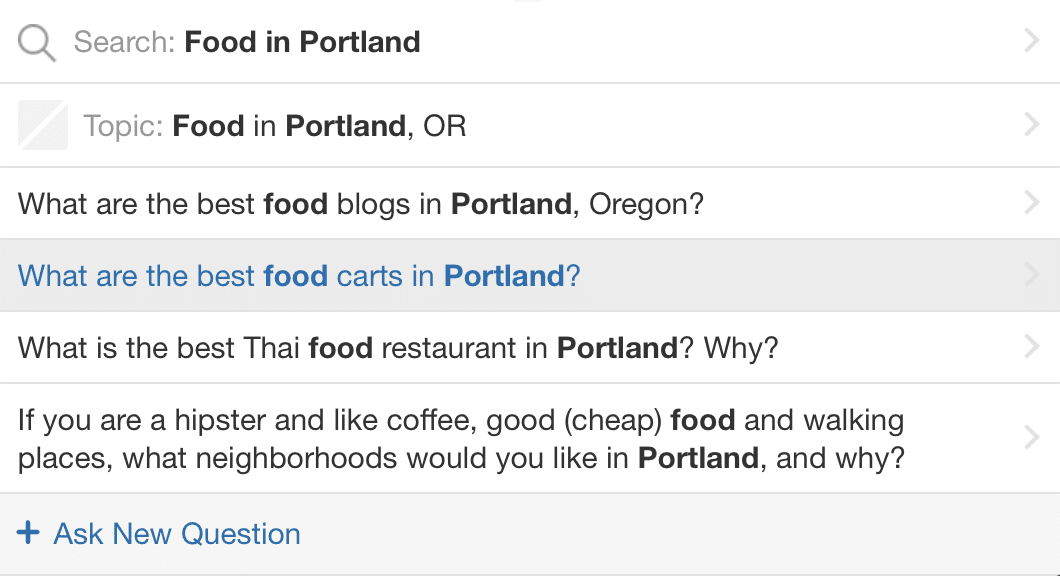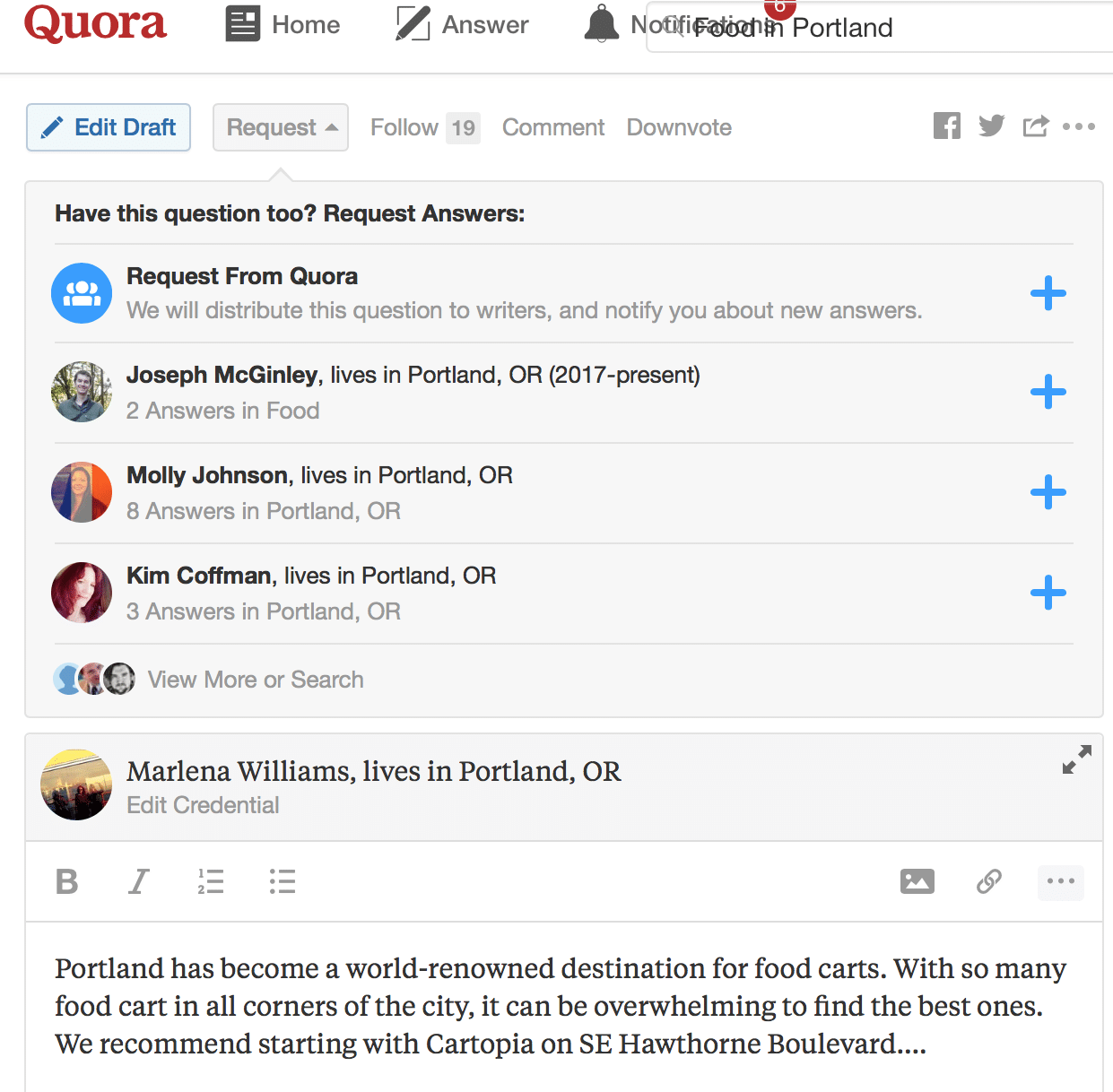This is the 6th post in a series about blogging to improve your SEO. Click here to get the full guide.
In our last article, we explained why simply writing solid content on your blog isn’t enough. In order for your piece to have extensive reach, you will need to promote it aggressively. Social media is an important part of marketing your blog posts, but you should also focus on link building to truly fuel your SEO. Use the following “advanced” promotion strategies to see your blog posts reach even further and the traffic to your site continue to grow..
Content Marketing Helps Build Links, Which Helps Your SEO
As we’ve said before, link building is a foundation of SEO. Links are a way to boost the authority of your site and help you rank highly on organic search results. You should focus specifically on Contextual Link Building. Contextual links are links that appear in the text of an article rather than in the footnotes or the sidebar. Done right, contextual link building can dramatically improve your site’s performance. If you are writing high quality content, people may cite and share your blog posts, either of their own accord or if you ask them directly. Much of your link building strategy will involve reaching out to other websites, writers, and marketers and politely asking them to read and perhaps even share your content. Here are some proven ways to get those all-powerful contextual link:
1. Contact Content Curators
The job of content curators is to search the internet for information relevant to a target audience and then share it through a variety of online communication channels. If you get in touch with the right content curators, they might be willing to distribute your blog posts with their readers. Start with a simple Google search to find the content curators you should reach out to. Try the following searches:
- Top list blogs + your location/keyword
- Top blog posts + your location/keyword
- Top link building posts +month
For example, we searched for “top blog posts + Portland.” Click on a few of the top results and then get in contact with them to see if they would be interested in including your blog on their site.
If you are doing the hard work of making your blog original, authoritative, and relevant to your target audience, they may take you up on it and include your blog or blog posts on their site.
2. Reach out to other known “Sharers” or “Influencers”
Start off by identifying people and sites that are regularly sharing content relevant to your target audience. In post three of this series, we taught you how to use Buzzsumo to browse blog post topics. You can also use it to find people who might be willing to share your content on their sites or social media feeds. First, enter your desired keywords into the the Buzzsumo search bar.
When the results show up, examine the top results and click on “View Sharers” to see the top people sharing these posts. A page will open up giving you contact information and statistics about these sharers. You can then get in touch with them and see if they’d be interested in sharing your post too. Just explain that you saw they shared xyz article and that you thought they might be interested in yours.
3. Get In Touch with the Sites You’ve Linked-To in Your Blog Post
If you are including links in your own blog posts to other articles, resources, businesses, etc., then email or message these businesses, let them know you included them in your latest blog post, and ask if they will share it on their site or social media platforms. They will likely be honored to have been showcased on your blog and want to return the favor.
Pro Tip: When you get in touch with content curators, prominent “sharers,” or other businesses, be friendly, casual, and polite. Personalize your messages with the person’s name so you don’t come off as spammy.
Answer Questions on Quora and Link to Your Content
We’ve also explained how you can use Quora to come up with blog post topics that people are searching for. You can also promote your content on Quora by answering questions and providing links to your posts. Start off by searching in Quora for a topic related to your article. Let’s say you’ve written a blog post on the Best Food Carts in Portland. We searched “Food in Portland” and found people asking “What are the best food carts in Portland?”
Click on this question and provide an informed, well-written, and concise answer to the question.
Then, provide a link to your blog post and say something like, “I’ve got a lot more thoughts on this topic, click here for my blog post about....” This will establish you as an informed source and encourage visitors to click onto your blog.
Don’t Forget About Email!
In the age of social media, don’t forget the power of email. Your email list is one of your most valuable marketing assets. You can turn to your email subscribers to spread the word on your latest post and maybe convince them to share it as well. Avoid asking your subscribers to read and share your post outright. Instead, try to persuade them to visit your blog naturally. When emailing your list about an upcoming special or event or promotion, include your most recent or relevant blog posts as well.
Try something like, “Visit Portland this Fall! Check out our list of the Top 6 Fall Events in Portland.” Your email should be short and sweet, but long enough to entice them to click onto your blog and keep reading.
Email lists might feel old school, but we still use them to stay in touch with our customers and share our new content with them. You can even subscribe to our emails here.
If you’ve learned anything from our last two blog posts, we hope it’s that simply writing quality content isn’t enough. The key to using blog posts to improve your SEO: Promote, promote, promote. While these more advanced promotion techniques might take a bit more effort on your part, they can and will pay off if you are rigorous and consistent.
Related Posts: Guide to Blogging
Part 1: Why Does My Hotel Need a Blog?
Part 2: 8 Tips for Starting a Successful Blog
Part 3: How to Pick Blog Post Topics That Stand Out
Part 4: Everything You Need to Know to Write Exceptional Blog Posts
Part 5: Marketing Your Blog Posts Part 1: Social Media Promotion
Part 6: Marketing Your Blog Posts Part 2: Advanced Promotion
Part 7: Marketing Your Blog Posts Part 2: Advanced Promotion
Odysys offers a Blog Post Writing & Social Marketing service to our customers. Learn more here.

